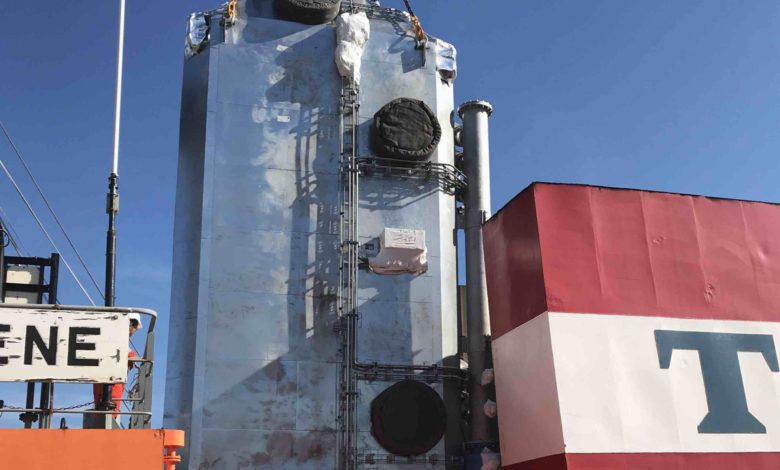Battle for scrubber legitimacy intensifies

The tit-for-tat battle on the legitimacy of scrubbers has ratcheted up in recent days as member states of the International Maritime Organization (IMO) meet in London to discuss the technology while a batch of scientific evidence supporting exhaust gas cleaning systems is set to be unveiled today.
The pro-scrubber lobbying group Clean Shipping Alliance 2020 (CSA 2020) yesterday hit out at a proposal submitted by the European Commission (EC) which urges the IMO to change its scrubber guidelines.
The proposal calls for “evaluation and harmonization” of scrubber discharges across all ports, worldwide. The proposal is intended for consideration by the 74th session of the IMO’s Marine Environment Protection Committee (MEPC 74) which meets in May, in London.
“This proposal is an attempt by the European Commission to push forward restrictions on scrubbers, which are accepted globally by the IMO, EU and others as acceptable means of improving air emissions quality in controlled areas” said CSA 2020 executive director Ian Adams. Adams, recently installed at CSA 2020, said the European proposal was based mostly on speculation and lacked credible evidence.
In recent months a number of key shipping destinations including Singapore, China and Fujairah, have imposed restrictions on the use of open-loop scrubbers in their waters, with CSA 2020 concerned that other nations will follow suit as the clock ticks down to the global sulphur cap which comes into force in 314 days.
“To see the Commission take this step within months of the entry-into-force of the global ECA is beyond disappointing,” Adams said.
CSA 2020 will be hosting a technical conference today in London, where scientific data relating to scrubber air emissions and wash water quality will be presented.
The IMO’s sub-committee on pollution prevention and response (PPR) has been meeting in London this week and discussion turned to scrubbers yesterday. At yesterday’s scrubber debate a number of member states called for more scientific research to be done looking at possible ocean pollution caused by open-loop scrubbers.
Regulators increasing their scrutiny of the technology will have many on edge. The latest data from Clarkson Research, released yesterday, shows how rapid the take-up of scrubbers has been over the past year.
The scrubber count has increased six-fold since January 2018, to represent over 10% of the fleet by tonnage capacity including both installed plus pending retrofit, and 31% of the orderbook by tonnage capacity, according to Clarkson Research. Including further additions pending, the total scrubber count now exceeds 2,500 vessels. It stood at less than 400 in January last year.
The cruise sector has the largest uptake within the fleet (61% by tonnage), with uptake in the tanker sector fleet reaching 14% by tonnage, in the bulker sector 7% and in the containership sector 11%.
Within the orderbook, 53% of tanker, 25% of bulker and 41% of containership tonnage has a confirmed scrubber ordered.
“We estimate that by 2020 up to 10% of the world fleet by capacity will be scrubber fitted, increasing to 15% by end 2020 – these estimates increase to 22% to 35% for the VLCC fleet,” commented Stephen Gordon, Clarkson Research’s managing director.

The FBI needs to investigate the IMO on this scrubber issue.
They started this with out cean clear honest studies & have been in partnership of manufacturers ramming it down the throat of owners !!!!!
WHY ??